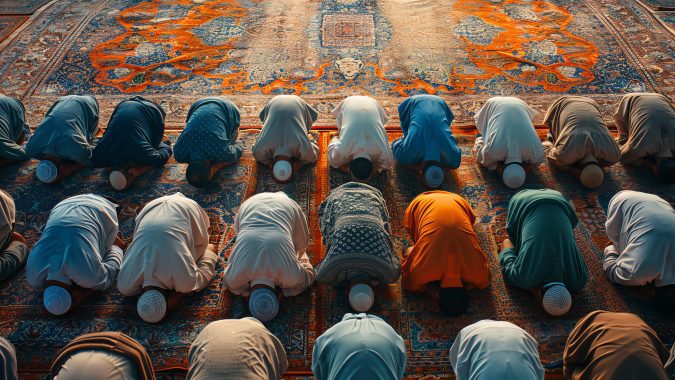What is Eid al-Fitr? 5 must-know facts as Muslims around the world celebrate
By Martin Oduor, March 30, 2025As the holy month of Ramadan comes to an end, Muslims across the world are celebrating Eid al-Fitr, one of Islam’s most significant religious festivals.
Marking the conclusion of a month-long fast, the holiday is a time of prayer, reflection, and community gatherings.
Here are five essential facts about Eid al-Fitr:
1. Eid al-Fitr marks end of Ramadan
Eid al-Fitr, often referred to as the ‘Festival of Breaking the Fast’, signifies the completion of Ramadan – a month when devout Muslims fast daily from dawn to sunset.
During this sacred period, worshippers dedicate themselves to increased prayer, charity, and good deeds, culminating in the joyous celebrations of Eid.
2. The date depends on lunar calendar
Islam follows a lunar calendar, meaning Ramadan and Eid al-Fitr shift approximately 10–12 days earlier each year in the Gregorian calendar.
The holiday begins on the first day of Shawwal, the 10th month of the Islamic calendar, and is determined by the sighting of the crescent moon.
This year, Eid al-Fitr commenced on Sunday, March 30, 2025, according to Saudi Arabia, the custodian of Islam’s holiest sites.
3. Different countries may celebrate on different days
Since the timing of Eid depends on local moon sightings, the exact date can vary between countries and Muslim communities.
Some nations rely on astronomical calculations, while others wait for religious authorities to confirm the moon sighting before announcing the holiday.
In Kenya, Eid al-Fitr celebrations kicked off this morning in mostly in the Muslim majority regions of North Eastern and the Coast.
4. Government declares a public holiday

In recognition of the religious significance of Eid al-Fitr, governments in Muslim-majority nations and some other countries declare public holidays for the occasion.
In Kenya, the government designated Monday, March 31, 2025, as a public holiday to observe Idd-ul-Fitr since the first day of Eid falls on a Sunday.
A gazette notice issued on Friday, March 28, 2025, by Interior Cabinet Secretary Kipchumba Murkomen confirmed the holiday, stating:
“It is notified for the general information of the public that, in exercise of the powers conferred by section 2 (1) of the Public Holidays Act, the Cabinet Secretary for Interior and National Administration declares that Monday, the 31st March, 2025, shall be a public holiday to mark Idd-ul-Fitr.”
5. A tradition started by Prophet Muhammad
The origins of Eid al-Fitr date back to the time of Prophet Muhammad.
According to Islamic tradition, Muhammad established the festival after migrating to Medina from Mecca.
It is a day of gratitude, where Muslims offer special prayers known as Salat al-Eid, distribute charity (Zakat al-Fitr) to the less fortunate, and gather with family and friends to share festive meals.
As Muslims worldwide celebrate this significant day, the spirit of Eid al-Fitr remains rooted in faith, generosity, and communal harmony – a reminder of the values emphasized throughout Ramadan.
